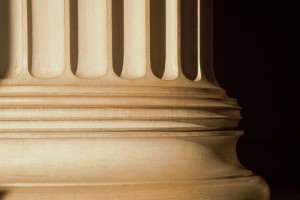 In a unanimous opinion, the California Supreme Court clarified that trial courts may use either California Evidence Code Sections 801(b) or 802 to admit or exclude the expert’s testimony. Potentially, the Opinion widens California judicial authority to exclude expert testimony by placing California closer to the federal Daubert standard and the majority of other states that follow such standard.
In a unanimous opinion, the California Supreme Court clarified that trial courts may use either California Evidence Code Sections 801(b) or 802 to admit or exclude the expert’s testimony. Potentially, the Opinion widens California judicial authority to exclude expert testimony by placing California closer to the federal Daubert standard and the majority of other states that follow such standard.
In Sargon Enterprises, Inc. v. University of Southern California, et al. (No. S191550, 11/26/2012), the Court held that
- Evidence Code section 801(b) permits California courts to review the substance of the information relied upon by the expert in determining admissibility.
- Evidence Code section 802 permits California courts to review the reasons for the expert’s opinion in determining admissibility.
Trial courts can exclude an expert witness based on either of these code sections.
The Supreme Court’s unanimous decision is not actually surprising. What is surprising is that the two out of three Appellate Court justices let stand the large and wild lost profit conclusions submitted to the jury at the trial level. The Sargon case shows how far an expert witness can go in creating absurd conclusions. This article provides additional information about the case and the Supreme Court’s ruling.
Here are some practical suggestions when considering damages testimony:
- Recognizing that a particular issue is important to a damages determination, plaintiffs sometimes wish to present an enormously wide range of damage amounts to a jury for their decision. In the Sargon case, the damages range was a multiple of five and a half times. This type of damages range, particularly when involving hundreds of millions of dollars, is an almost certain indication that the damages approach is inappropriate speculation.
- On smaller cases, parties understandably avoid increasing the costs of litigation by hiring additional experts. However, the Sargon case involved a request (on the high end) of $1.2 billion. For a substantial dispute, the plaintiff should employ an industry expert to address issues regarding the reliability of the offered damage calculations. In the Sargon case, plaintiffs had an accountant with no meaningful industry experience attempt to testify at length about competition in this industry, and the success of a specific new product among dozens of competitive alternatives. Here, this accountant should not have attempted this industry-specific testimony.
